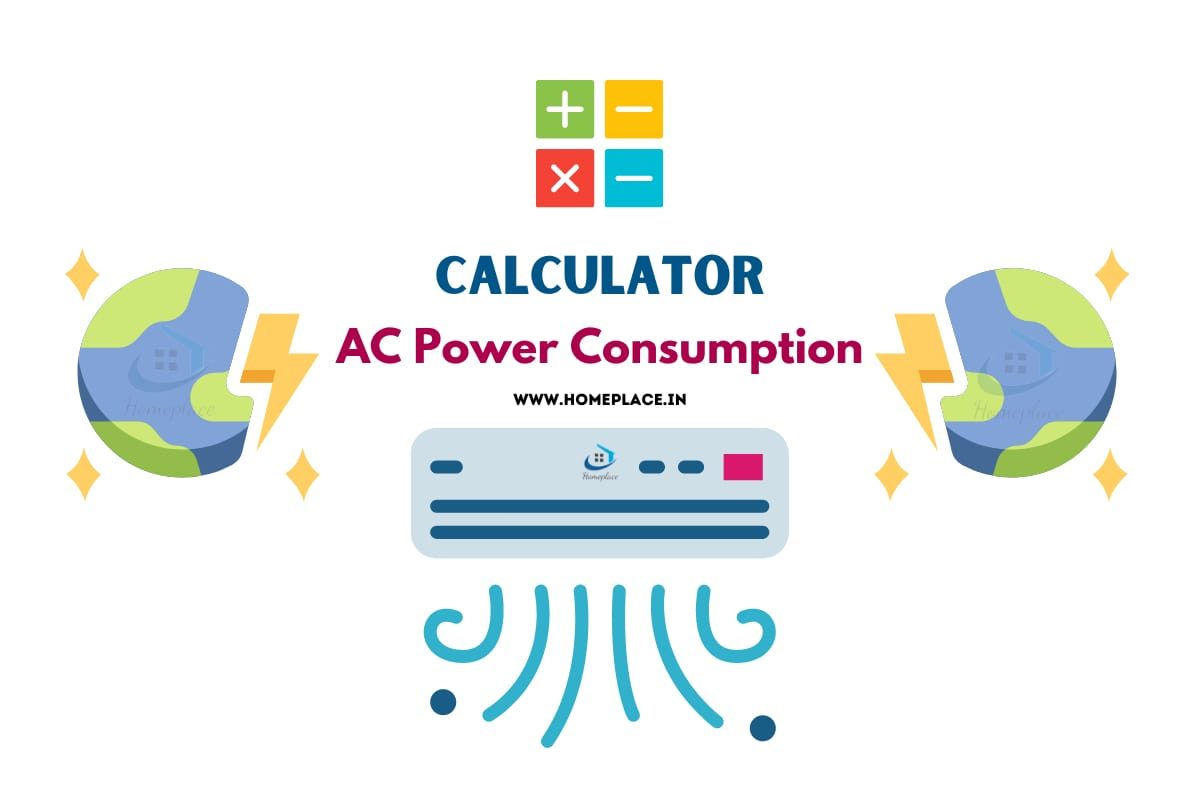This calculator is designed to calculate power consumption of 1 Ton, 1.5 Ton, and 2 Ton Air Conditioners. To use this calculator, you need to know the capacity, energy rating (1/2/3/4/5 star), approximate run time of the AC and electricity tariff. The tool will show a tentative electricity consumption and bill for both the inverter and non-inverter AC when you click the button. This calculator works for any currency- ₹, $, €, £, ¥, etc.
how to calculate power consumption of AC?
To calculate the power consumption of AC using the calculator, follow these steps-
- Choose a suitable capacity from the list- 1 , 1.5 and 2 Tons.
- Select BEE star rating from the dropdown list- 1, 2, 3, 4, 5 Stars.
- Enter the hours of operation in the next box.
- Put the electricity tariff in your area. It is considered as price/kWh or units.
- Click on the “calculate” button to compute daily and monthly power consumption for both inverter and non-inverter AC. You will also get the monthly electricity cost to run the air conditioner.
Considerations to Compute Energy consumption of AC
The energy efficiency of an air conditioner depends on several factors-
- Tonnage is a primary factor that determines the capacity of the air conditioner. Higher is the tonnage, and more is the energy consumption. A 1 Ton AC is suitable for a room size up to 150 sq. ft. At the same time, 1.5 and 2 Ton air conditioners are ideal for rooms up to 250 and 400 sq. ft.
- Cooling capacity is a key factor to determine the effectiveness of the air conditioner. It is fixed for every inverter and non-inverter AC. With more tonnage, the cooling capacity of the AC increases. The cooling capacity of 1-ton non-inverter AC= 3.517 kW.
- BEE star rating is another important factor set by the Bureau of Energy Efficiency. As per this standard, you can get air conditioners in 5 categories ranging from 1 to 5 star ratings. Higher is the star rating, the more efficient is the AC.
- ISEER or EER is also a crucial factor in calculating the power consumption of air conditioners. ISEER or Indian Seasonal Energy Efficiency Ratio is the ratio between the AC’s seasonal load and power consumption.
- The uptime of the compressor is very important. If the compressor does not run, there will be no cooling as well as energy consumption. The uptime of the compressor usually varies from 40% to 100%. In this calculator, we have considered the 100% uptime of the compressor.
- The temperature of the air to be cooled is another important factor that influences the air conditioner’s energy usage. This is because an AC removes the heat from a room using refrigerants that runs through the compressor. To dissipate a larger amount of heat, air conditioners run their compressor faster, increasing the power consumption.
- Electricity consumption by an air conditioner also depends on the duration of the operation. The longer you run the AC, the more will be the power consumption.
- This calculator is valid for all types of air conditioners- Split, Window, Tower, Portable and Hot & Cold AC.
Tips to reduce AC electricity consumption
- Choose the tonnage capacity intelligently. Inadequate or over-capacity will result in higher energy consumption.
- Always prefer an inverter AC over a non-inverter AC to reduce electricity usage by 10-30%.
- Do not frequently turn on and off the air conditioner. It will consume more power every time you switch on the machine in the initial phase of operation.
- Check the pressure of the refrigerant at least once a year to detect any possible leakage or quality degradation. Refill the refrigerant for any such cases. It will help to run the AC more efficiently.
- Properly insulate the working space or the room where you install the AC. Improper insulation will result in increased power consumption with higher electricity bills.
- Do not choose an AC below 3-star BEE rating. Lower ratings will increase energy consumption. It is best to choose an AC with a 5-star BEE rating.
- ISEER also plays a vital role in the energy usage of an air conditioner. Thus, we highly recommend to select an AC with a higher ISEER value.
Other Calculators:

